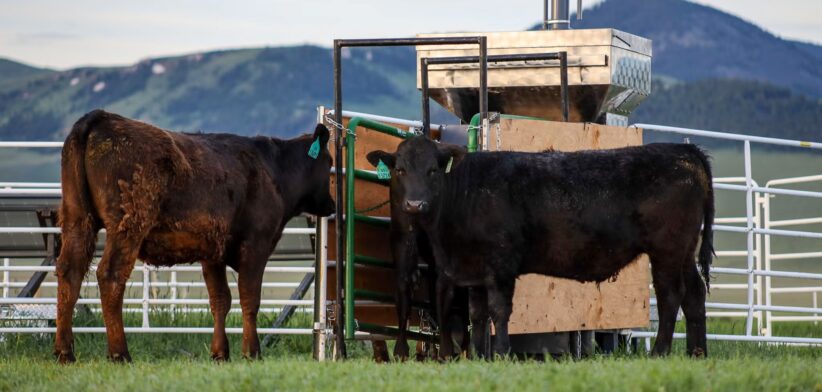Seaweed has the potential to improve the sustainability of the cattle industry with a trial in the United States seeing large reductions in methane emissions from grazing cattle.
Researchers from the University of California, Davis, found that feeding grazing beef cattle a seaweed supplement in pellet form reduced their methane emissions by almost 40 percent without affecting their health or weight.
Professor Ermias Kebreab said it was the first study to test seaweed on grazing beef cattle and supported previous studies that showed seaweed cut methane emissions by 82 percent in feedlot cattle and over 50 percent in dairy cows.
Professor Kebreab said livestock accounted for 14.5 percent of global greenhouse gas emissions, with the largest portion coming from methane that cattle release when they burped.
“Grazing cattle also produce more methane than feedlot cattle or dairy cows because they eat more fiber from grass,” he said.
“Beef cattle spend only about three months in feedlots and spend most of their lives grazing on pasture and producing methane.
“We need to make this seaweed additive or any feed additive more accessible to grazing cattle to make cattle farming more sustainable while meeting the global demand for meat.”
Professor Kebreab said daily feeding of pasture-based cattle was more difficult than feedlot or dairy cows because they often grazed far from ranches for long periods.
“However, during the winter or when grass is scarce, ranchers often supplement their diet.”
He said for this study, researchers divided steers into two groups, with one receiving the seaweed supplement and the other did not.
“Since these were grazing cattle, they ate the supplement voluntarily, which still resulted in a nearly 40 percent cut in emissions.”
He said most research studies to reduce methane emissions using feed additives had taken place in controlled environments with daily supplements.
“This method paves the way to make a seaweed supplement easily available to grazing animals.
“Ranchers could even introduce the seaweed through a lick block for their cattle.”
Professor Kebreab said pastoral farming, which included large grazing systems, supported millions of people around the world, often in areas vulnerable to climate change.
“This study suggests a way to make cattle grazing better for the environment, while playing a role in fighting climate change.”
Read the full study: Mitigating methane emissions in grazing beef cattle with a seaweed-based feed additive: Implications for climate-smart agriculture.








